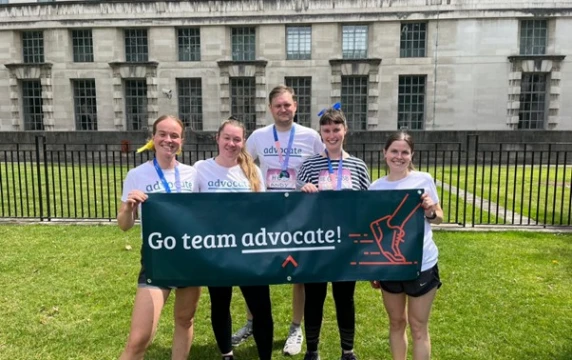Emmanuel Sheppard, 3 Verulam Buildings
Pro Bono Ambassador and Advocate panel member, Emmanuel Sheppard, talks us through pro bono being an essential part of practice.
To celebrate Volunteers' Week, we spoke to some of our fantastic Pro Bono Ambassadors about what drives them to do pro bono work. These are the barristers who not only dedicate a generous amount of time and expertise to fighting access to justice but encourage others in their chambers to do the same. We couldn't do the work we do without our volunteers - the whole Advocate team is incredibly grateful for their support.
Our ambassadors take us through their experience of pro bono throughout their career, from their very first case to their most memorable, as well as lessons they have learned and advice for any lawyers out there who are sat on the pro bono fence. Read on to see what Emmanuel Sheppard has to say.

At what stage in your career did you take on your first pro bono case?
During my first year of practice.
Why did you decide to undertake pro bono work?
Of course there are the selfish reasons (opportunity for advocacy, more responsibility) and of course it is enormously satisfying to help people directly, but to me at least the benefits of pro bono work go somewhat deeper.
It is easy to forget how fortunate we are as lawyers to work in this jurisdiction, where the judiciary is highly respected and where (in the civil field at least) there are few examples of an obviously problematic rule or principle. That makes our job as lawyers considerably easier. It also means we enjoy the privilege of being reasonably sure that once we have done our bit, the case will be fairly resolved.
Unfortunately, so long as litigants are being put off by costs or else unable to present their case properly without a lawyer, that level certainty drops and access to justice more widely is undermined. In that context, pro bono work seems to me to be an essential part of any practice. It is also (in most cases) a small 'thank you' to an overworked and understaffed judiciary, I hope.
What was the most memorable case you worked on, and what did you do?
I have been fortunate in being able to do a relatively wide range of work from an Article 10 /free speech matter to employment cases (another advantage of pro bono work). My most memorable is a commercial case with Advocate, where a bank was reclaiming sums from an individual paid to them by mistake - the money had been spent and the bank's costs now more than doubled the claim.
If successful, the claim would have placed my client in serious financial difficulty. The case involved an interesting discussion and application of the estoppel defences to Unjust Enrichment (and their interaction with change of position).
What effect did pro bono work have on your career?
It’s too early to tell - but I anticipate great things. It has also been immensely enjoyable.
What is the most rewarding thing about doing pro bono work?
Beyond my rambling answer to question 6, the opportunity to represent someone else's interests.
What advice would you give to any barrister unsure about whether to start doing pro bono work?
Perhaps, draw up a 'pro bono business plan'. Most lawyers are convinced of the importance of pro bono work generally.
From my experience of talking to people, the sources of doubt are usually: a) can I afford it; b) what pro bono work will best suit my practice trajectory? Thinking about pro bono work as an arm of your practice may answer those questions.
A quarter of the Bar of England and Wales are signed up to our panel of volunteers. Are you? To join the panel, download the registration form here, and soon, you'll be able to say "I Do Pro Bono" too!






